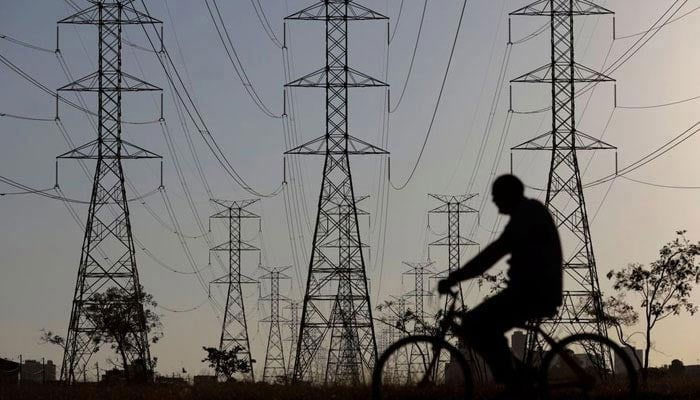Seven major IPPs seek Nepra’s nod to cut tariffs
Proposed exchange rate of Rs278.80 per US dollar will also be used in cost calculations
ISLAMABAD: In a bid to ease pressure on electricity consumers amid the IMF-backed structural reforms, seven major independent power producers (IPPs) have sought Nepra’s approval for reduction in their key tariff components.
The National Electric Power Regulatory Authority (Nepra) has accepted joint applications filed by the Central Power Purchasing Agency (CPPA-G) and IPPs operating under the 2002 Power Policy.
The applicants include Nishat Chunian Power Ltd, Nishat Power Ltd., Narowal Energy Ltd., Liberty Power Tech Ltd., Engro Powergen Qadirpur Ltd., Sapphire Electric Power Ltd., and Saif Power Ltd. The regulator has scheduled a public hearing on the proposals for March 24.
The tariff adjustment applications propose revisions including reduction in the Operations and Maintenance (O&M) costs, adjustments in the cost of working capital, and a change in the insurance cap.
Following extensive talks with the government’s energy task force, the IPPs have agreed to amended contracts adopting a “hybrid take-and-pay” payment structure and lowering the cost of power generation. They have mutually agreed with the power purchaser to enter into amended agreements.
Under this model, CPPA-G will pay 35 percent of the revised Return on Equity (RoE) and Return on Equity During Construction (RoEDC) components. If the net electricity output exceeds 35 percent of the total contract capacity, the IPPs will receive additional payments.
The revised cost of working capital is based on seven days of inventory, 15 days of receivables, and an RFO price of Rs165,000 per ton (excluding GST), and will follow KIBOR plus 1 percent.
Additionally, the insurance component will be capped at 0.90 percent of the allowed EPC cost starting fiscal year 2025-26. The proposed exchange rate of Rs278.80 per US dollar will also be used in cost calculations.
Local O&M costs will be indexed quarterly at the lower of five percent per year or the actual national consumer price index (NCPI), while foreign O&M costs will be adjusted for 70 percent of rupee depreciation, with full benefit of any rupee appreciation passed on to consumers.
-
 EU Leaders Divided Over ‘Buy European’ Push At Belgium Summit: How Will It Shape Europe's Volatile Economy?
EU Leaders Divided Over ‘Buy European’ Push At Belgium Summit: How Will It Shape Europe's Volatile Economy? -
 Prince Harry, Meghan Markle Issue A Statement Two Days After King Charles
Prince Harry, Meghan Markle Issue A Statement Two Days After King Charles -
 'The Masked Singer' Pays Homage To James Van Der Beek After His Death
'The Masked Singer' Pays Homage To James Van Der Beek After His Death -
 Elon Musk’s XAI Shake-up Amid Co-founders’ Departure: What’s Next For AI Venture?
Elon Musk’s XAI Shake-up Amid Co-founders’ Departure: What’s Next For AI Venture? -
 Prince William, King Charles Are Becoming Accessories To Andrew’s Crimes? Expert Explains Legality
Prince William, King Charles Are Becoming Accessories To Andrew’s Crimes? Expert Explains Legality -
 Seedance 2.0: How It Redefines The Future Of AI Sector
Seedance 2.0: How It Redefines The Future Of AI Sector -
 Andrew Mountbatten-Windsor Still Has A Loan To Pay Back: Heres Everything To Know
Andrew Mountbatten-Windsor Still Has A Loan To Pay Back: Heres Everything To Know -
 US House Passes ‘SAVE America Act’: Key Benefits, Risks & Voter Impact Explained
US House Passes ‘SAVE America Act’: Key Benefits, Risks & Voter Impact Explained -
 'Heartbroken' Busy Philipps Mourns Death Of Her Friend James Van Der Beek
'Heartbroken' Busy Philipps Mourns Death Of Her Friend James Van Der Beek -
 Gwyneth Paltrow Discusses ‘bizarre’ Ways Of Dealing With Chronic Illness
Gwyneth Paltrow Discusses ‘bizarre’ Ways Of Dealing With Chronic Illness -
 US House Passes Resolution To Rescind Trump’s Tariffs On Canada
US House Passes Resolution To Rescind Trump’s Tariffs On Canada -
 Reese Witherspoon Pays Tribute To James Van Der Beek After His Death
Reese Witherspoon Pays Tribute To James Van Der Beek After His Death -
 Halsey Explains ‘bittersweet’ Endometriosis Diagnosis
Halsey Explains ‘bittersweet’ Endometriosis Diagnosis -
 'Single' Zayn Malik Shares Whether He Wants More Kids
'Single' Zayn Malik Shares Whether He Wants More Kids -
 James Van Der Beek’s Family Faces Crisis After His Death
James Van Der Beek’s Family Faces Crisis After His Death -
 Courteney Cox Celebrates Jennifer Aniston’s 57th Birthday With ‘Friends’ Throwback
Courteney Cox Celebrates Jennifer Aniston’s 57th Birthday With ‘Friends’ Throwback




